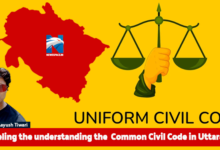
Law, an ever-evolving and dynamic field, constantly adapts to new societal demands and technological advancements. In recent years, a burgeoning field of law has emerged that addresses the legal and ethical considerations surrounding robotics and artificial intelligence (AI). This intersection of law and technology presents a host of novel challenges and opportunities that demand our attention and careful deliberation.
With the rapid advancement of robotics and AI technologies, societies around the world are witnessing an unprecedented level of automation in various sectors. However, this technological revolution comes with its own set of legal complexities. As robots and AI systems fulfill increasingly crucial roles, both in industry and in daily life, it becomes essential to establish a legal framework to address issues such as liability, accountability, intellectual property, and social impact.
One of the most intriguing and controversial debates within the field of robotic law is the concept of granting legal personhood to robots. While this idea may seem like science fiction, it raises essential ethical and legal questions concerning the rights and responsibilities of AI entities. Should robots be considered as mere tools or as beings with autonomy and certain rights? Establishing the legal status of AI systems will have far-reaching implications for various aspects of society, including employment, liability, and even taxation. The question is are we taking measures to prepare a blend of intellegentia of lawyers and scientists by bringing them together in one ‘conference room’. Is training being given to the law committee members to draft something as herculean and complicated as A CHAT GPT ACT is to be critically examined for a better future.
For example the concept of the vicarious liability can be extended to identify the responsibility of the coders as far as the possibility of some AI equipped bot going untamed in future is concerned. (The concept of vicarious liability in tort is based on the principle of “respondeat superior” which means “let the master answer” in Latin. This principle holds that the employer is responsible for the actions of his/her employees or agents, who are acting within the scope of their employment or agency)
To answer various such techi-legal conundrums an expert usage of the legal fiction must be revamped. We have ignored the legal fiction far too much in the present time of crisis. Experts of The Fictio Juris must be summoned and made to synergise their creativity with the sci fi specialists.
As robots become more autonomous and capable of making independent decisions, questions surrounding accountability and liability arise. Who should be held responsible when a robot causes harm or makes a faulty decision? Should it be the robot itself, the manufacturer, the programmer, or a combination of all these parties? Formulating legal frameworks that account for these nuances is critical to ensure fairness, protect individuals, and foster innovation. The immortal court scene as filmed in the Aishwarya Rai Bachchan, Rajnikant stated mega buster ‘Robot’ is the most remarkable example of this , it must be revamped, pondered upon and must be presented in a compact way to the new generation
AI systems, while neutral in principle, are only as unbiased as the data they are fed with. However, biases can unknowingly seep into their algorithms, leading to discrimination against certain groups or perpetuating societal biases. Developing legislation that ensures the ethical use of AI, mitigates biases, and promotes transparency is crucial in maintaining social harmony and equality in an increasingly AI-driven world.
Robotic and AI technologies generate vast amounts of data, raising concerns about privacy and data protection. Legislation needs to strike a balance between enabling innovation and safeguarding individuals’ privacy rights. It must address issues such as consent, data ownership, and data security to prevent abuse and promote trust in technology.
So Law, as an ever-evolving discipline, must adapt to the pace of technological advancement. “Laws grow like a language along with the society and fade away with its decay”, says the famous Volksgeist Theory Of Jurisprudence. (My favourite during the college days) . ( Comparative analysis of the State Decisis and Volksgeist is recommended here).
The emergence of robotic and AI laws underscores the importance of addressing the legal and ethical considerations brought forth by these transformative technologies. By embracing the challenges and working towards comprehensive legal frameworks, we ensure that these advancements enhance our society while upholding fundamental rights, fostering inclusivity, and promoting justice in this new era of robotics and artificial intelligence.





